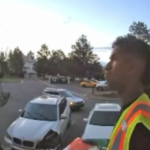CHICAGO (AP) — Reeling from a string of defeats, anti-abortion groups and their Republican allies in state governments are employing various strategies to counter proposed ballot initiatives aimed at protecting reproductive rights or preventing voters from having a say in the fall elections.
The methods include efforts to remove signatures from initiative petitions, legislative pushes for competing ballot measures that could confuse voters, and lengthy delays caused by lawsuits over ballot initiative language. Abortion rights advocates note that many of these strategies stem from tactics tested last year in Ohio, where voters ultimately approved a constitutional amendment affirming reproductive rights.
These strategies are being implemented in at least seven states where initiatives to codify abortion and reproductive rights are on the table for the November ballot. The battles over planned statewide ballot initiatives are indicative of the deep divides created by the U.S. Supreme Court’s decision two years ago to eliminate a constitutional right to abortion.
Just last week, the court issued a ruling in a significant abortion case, unanimously upholding access to a drug commonly used in U.S. abortions, though disputes over mifepristone persist in many states.
The stakes are high for both sides when it comes to the proposed ballot initiatives.
In states where Republicans control the legislature and enact strict abortion restrictions, a statewide citizens initiative is often the only means of safeguarding access to abortion and other reproductive rights. In all seven states where the question has appeared on the ballot since 2022, voters have either enshrined abortion rights or rejected attempts to limit them.
In South Dakota, lawmakers passed a bill allowing residents to revoke their signatures on citizen-led petitions. This sparked a comprehensive effort by anti-abortion groups to invalidate a proposed abortion rights ballot measure by urging endorsers to withdraw their signatures.
In May, the South Dakota secretary of state labeled as a “scam” hundreds of phone calls from an anti-abortion group accused of “impersonating” government officials.
“It appears that the calls are attempting to pressure voters into requesting that their name be removed from the Abortion Rights petitions,” the office stated.
Adam Weiland, co-founder of Dakotans for Health, the organization behind the proposed measure, described this as “an orchestrated, organized effort across states.”
“The people want to vote on this issue, and they don’t want that to happen,” he remarked about anti-abortion groups. “They’re using everything they can to prevent a vote on this issue.”
An Arkansas “Decline to Sign” campaign intensified this month after a conservative advocacy group published the names of the paid canvassers for an abortion rights ballot measure effort. The group behind the ballot measure effort, Arkansans for Limited Government, condemned the move as an intimidation tactic.
In Missouri, Republicans and anti-abortion groups have opposed efforts to restore abortion rights through a constitutional amendment at every stage of the process.
Republican Attorney General Andrew Bailey delayed the abortion-rights campaign for months last year. Then the secretary of state, Republican Jay Ashcroft, attempted to describe the proposal to voters as permitting “dangerous and unregulated abortions until live birth.” A state appeals court last year determined that Ashcroft’s wording was politically biased and rejected it.
However, Ashcroft’s actions and the legal battle delayed the abortion-rights campaign for several months, hindering its supporters from collecting the thousands of voter signatures needed to get the amendment on the ballot.
After resolving the legal disputes, abortion opponents initiated a “decline to sign” campaign to impede the abortion-rights campaign’s signature-collecting efforts. At one point, voters received texts falsely accusing petitioners of attempting to steal people’s personal data.
Republican lawmakers tried to advance another ballot measure to raise the threshold for amending the Missouri Constitution, partly in hopes of making it more difficult to enact the abortion-rights proposal.
Both anti-abortion efforts failed, and in May, the abortion-rights campaign submitted more than double the required number of voter signatures. It is now up to Ashcroft’s office to verify the signatures and qualify it for the ballot.
Meanwhile, opposition groups in Arizona, Colorado, Florida, and Nebraska have attempted to create their own ballot amendments to codify existing abortion restrictions, though such efforts failed to gather enough signatures in Florida and Colorado.
Jessie Hill, a law professor at Case Western Reserve University School of Law in Cleveland who served as a consultant to the Issue 1 campaign that solidified abortion rights in Ohio, cautioned about the potential for competing ballot measures that could confuse voters.
While efforts to keep abortion off the ballot mirror what was seen in Ohio last year, Hill is closely monitoring new efforts nationwide.
“The anti-abortion side is still trying to determine the formula to defeat these ballot measures,” Hill remarked.
A strategy document leaked last month shows Arizona Republicans considering several competing measures to enshrine abortion restrictions into the state constitution. Potential petition names include the “Protecting Pregnant Women and Safe Abortions Act,” the “Arizona Abortion and Reproductive Care Act,” or the “Arizona Abortion Protection Act.”
The document outlines how the alternative measures could undermine a proposal from reproductive rights groups seeking to codify abortion rights based on viability, typically around 23 to 24 weeks into pregnancy.
“This leaked document revealed a plan to confuse voters through one or multiple competing ballot measures with similar titles,” said Cheryl Bruce, campaign manager for Arizona for Abortion Access.
In Nebraska, anti-abortion groups are countering a planned ballot initiative to protect reproductive rights with two of their own.
Allie Berry, campaign manager of the Nebraska Protect Our Rights campaign aimed at safeguarding reproductive rights, stated that the competing measures are meant to deceive and confuse voters. She noted that the campaign is working to educate voters on the distinctions between each of the initiatives.
“If you’re resorting to deception and confusion, it indicates that they recognize that most Nebraskans want to protect abortion rights,” she mentioned.
One counter initiative launched by anti-abortion activists in May seeks to ban abortion at all stages of pregnancy. Known as “Now Choose Life,” the petition would grant embryos “personhood.”
Another launched in March falls short of that but seeks to codify the state’s existing 12-week abortion ban into the state constitution while enabling lawmakers to pass additional restrictions in the future.
The petition, dubbed Protect Women and Children, has received endorsements from the national anti-abortion group Susan B. Anthony Pro-Life America and others in the state.
Sandy Danek, executive director of Nebraska Right to Life, described the petition as a “reasonable alternative measure.” She indicated that as “as time goes on and we continue to educate,” the organization will work toward further restricting abortion.
“I see this as an incremental process that we’ve been working on for 50 years,” she remarked.
Associated Press writer Summer Ballentine in Jefferson City, Missouri, contributed to this report.
The Associated Press receives support from several private foundations to enhance its explanatory coverage of elections and democracy. See more about AP’s democracy initiative here. The AP is solely responsible for all content.





